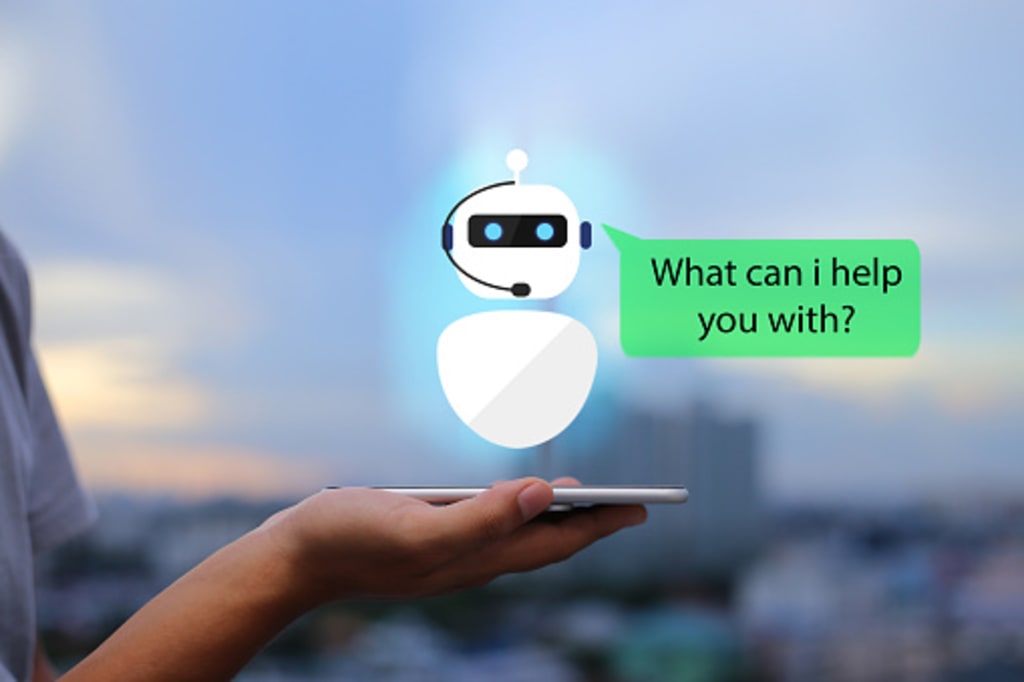A comprehensive guide on everything around AI chatbots
AI chatbots

Welcome to our comprehensive guide on everything around AI chatbots. In today's world, the integration of artificial intelligence (AI) in different industries has become increasingly important. AI-powered chatbots are the new buzz in the market, and businesses are adopting them to improve their customer experience. In this guide, we will take you through everything you need to know about AI chatbots, their applications, benefits, challenges, and the future of chatbots. So, let's dive in!
What are AI Chatbots?
AI chatbots are computer programs designed to simulate human conversations by using natural language processing (NLP), machine learning, and other AI technologies. These chatbots can be integrated with messaging platforms, mobile applications, websites, and social media channels to communicate with customers in real-time. The main advantage of AI chatbots is their ability to learn from past interactions, understand customer intent, and provide personalized responses.
Types of AI Chatbots
There are two main types of AI chatbots - rule-based and self-learning chatbots.
- Rule-based Chatbots:
These chatbots follow pre-programmed rules to provide responses to user queries. They can only answer questions that have been specifically programmed into them. Rule-based chatbots are best suited for handling simple queries and providing basic information.
- Self-learning Chatbots:
These chatbots use machine learning algorithms to learn from past interactions and improve their responses over time. They are more sophisticated than rule-based chatbots and can handle complex queries. Self-learning chatbots are best suited for customer service, sales, and support functions.
Applications of AI Chatbots
AI chatbots have a wide range of applications across various industries. Some of the most common applications of AI chatbots include:
- Customer Service:
AI chatbots can be used to provide instant support to customers by answering frequently asked questions, providing personalized recommendations, and handling customer complaints. This can help businesses save time and money by reducing the need for human customer support agents.
- Sales and Marketing:
AI chatbots can be used to improve sales and marketing efforts by providing personalized product recommendations, handling customer inquiries, and promoting products and services. Chatbots can also be used to gather customer feedback and insights, which can help businesses improve their products and services.
- Healthcare:
AI chatbots can be used in the healthcare industry to provide patient support, handle appointment scheduling, and provide basic medical information. Chatbots can also be used to monitor patient health and provide personalized health recommendations.
- Finance:
AI chatbots can be used in the finance industry to handle customer inquiries, provide investment advice, and assist with financial planning. Chatbots can also be used to provide personalized recommendations based on customer financial history and preferences.
Benefits of AI Chatbots
There are several benefits of using AI chatbots for businesses. Some of the key benefits include:
- Cost Savings:
AI chatbots can help businesses save money by reducing the need for human customer support agents. Chatbots can handle a large volume of queries simultaneously, without requiring breaks or time off, which can significantly reduce staffing costs.
- Improved Customer Experience:
AI chatbots can provide instant support to customers, 24/7. They can also provide personalized recommendations based on customer history and preferences, which can improve the overall customer experience.
- Increased Efficiency:
AI chatbots can handle a large volume of queries simultaneously, without requiring breaks or time off, which can significantly improve response times and increase efficiency.
Challenges of AI Chatbots
Despite the benefits, there are also some challenges associated with AI chatbots. Some of the main challenges include:
- Complexity:
Developing and implementing AI chatbots can be complex and time-consuming. It requires expertise in machine learning, natural language processing, and other AI technologies.
- Data Privacy:
AI chatbots require access to customer data, which can raise privacy concerns. Businesses need to ensure that they comply with data protection regulations and implement robust security measures to protect customer data.
- Accuracy:
AI chatbots rely on machine learning algorithms to learn from past interactions and provide responses. However, these algorithms are not always accurate, and there is a risk of providing incorrect or irrelevant responses.
The Future of AI Chatbots
The use of AI chatbots is expected to grow significantly in the coming years. According to a report by Grand View Research, the global chatbot market is expected to reach $1.25 billion by 2025, growing at a CAGR of 24.3% from 2020 to 2025. The growth is driven by the increasing adoption of chatbots by businesses across various industries.
Advancements in AI technologies, such as natural language processing and machine learning, are also expected to improve the capabilities of chatbots. Chatbots will become more sophisticated, able to handle complex queries, and provide more personalized responses.
Conclusion
AI chatbots are becoming increasingly popular in different industries, providing businesses with an opportunity to improve customer experience, increase efficiency, and reduce costs. However, there are also challenges associated with implementing AI chatbots, such as complexity, data privacy, and accuracy. Despite these challenges, the future of AI chatbots is bright, with advancements in AI technologies expected to improve their capabilities further.
About the Creator
Enjoyed the story? Support the Creator.
Subscribe for free to receive all their stories in your feed. You could also pledge your support or give them a one-off tip, letting them know you appreciate their work.





Comments
There are no comments for this story
Be the first to respond and start the conversation.